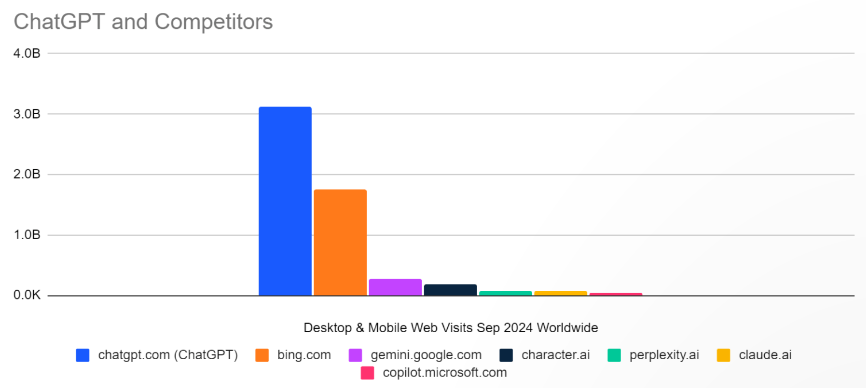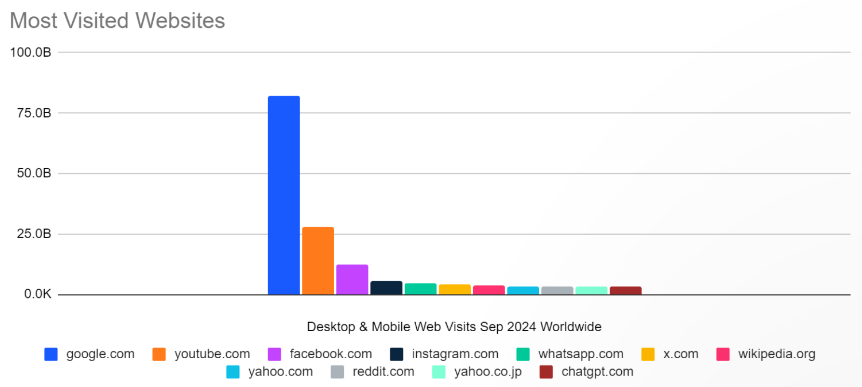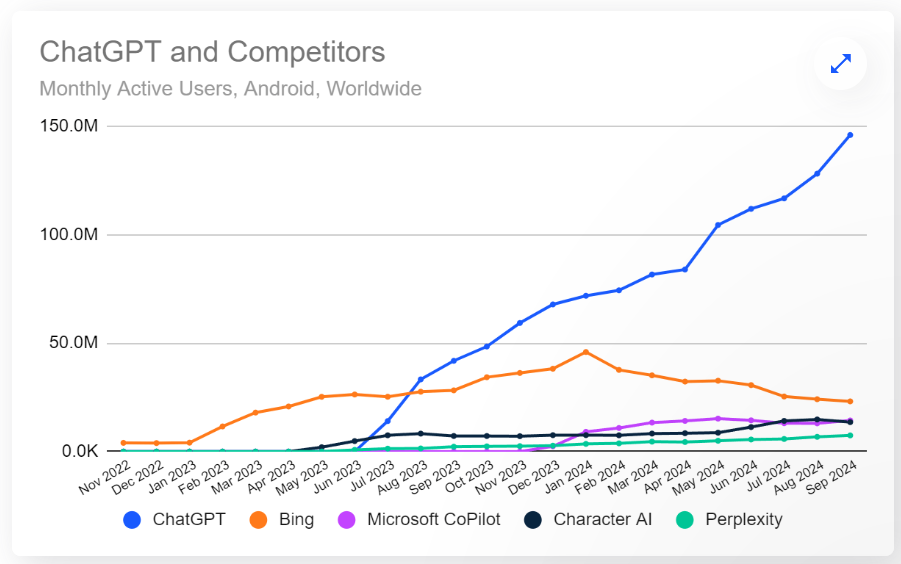ChatGPT breaks traffic record with over 3 billion monthly views

Key Points
- ChatGPT sets a record in September 2024 with over 3.1 billion visits worldwide to chatgpt.com. This is an increase of 112 percent over the previous year and 18.7 percent over the previous month.
- This puts ChatGPT well ahead of competitors such as Claude.ai, Perplexity.ai and Character.ai. In the US, ChatGPT overtook Microsoft's Bing search engine for the first time. OpenAI plans to expand ChatGPT as a search engine in the future.
- ChatGPT's mobile app is also experiencing strong growth in monthly active users. This is likely because OpenAI has expanded its free offering to include the best models. It now needs to prove that it can convert free users into paid users.
OpenAI's ChatGPT reached a new milestone in September 2024, surpassing Microsoft's Bing search engine in visitor numbers for the first time. The AI chatbot saw significant growth in both web and mobile app usage.
According to estimates from Similarweb, ChatGPT's website received more than 3.1 billion visits worldwide last month. This represents a 112 percent year-over-year increase and an 18.7 percent increase from August.
ChatGPT's traffic far exceeds that of other AI chatbots such as Claude.ai, Perplexity.ai, and Character.ai. Even Microsoft's Bing, which is increasingly positioning itself as an AI application, lags with 1.8 billion visits in September.

And OpenAI's ChatGPT for search hasn't even reached its final form yet: The company plans to expand ChatGPT's capabilities as a search engine in the future, with a prototype of SearchGPT already undergoing user testing.
With over 3 billion monthly page views, ChatGPT now ranks as the eleventh most visited website globally. While still well behind internet giants like Google (82 billion visits) and YouTube (28 billion visits), it has surpassed Amazon.com's 2.6 billion visits, excluding international domains.

In the United States, ChatGPT surpassed Bing for the first time with 442.9 million visits compared to Bing's 404.3 million visits in September.
ChatGPT's growth accelerates
Unlike the slump experienced after its initial boom in 2023, ChatGPT has shown consistent growth throughout 2024, according to Similarweb,
The mobile app has also seen strong user increases, with monthly active users on iOS and Android rising by 109% year-over-year in the US and 200.7% in the UK. Worldwide, app usage growth based on Android data reached 249%.

Free offerings likely driving ChatGPT's growth, but at a cost
ChatGPT's newfound growth can be attributed to OpenAI's expansion of its free tier. The company now offers access to its best models and limited image generation capabilities at no cost. Even the new, computationally expensive "reasoning" model o1-mini is available in the free version.
However, this strategy increases operating costs and puts pressure on margins. OpenAI needs to prove that it can convert free users into paying customers, possibly by offering fundamentally better models only in the paid version.
AI News Without the Hype – Curated by Humans
As a THE DECODER subscriber, you get ad-free reading, our weekly AI newsletter, the exclusive "AI Radar" Frontier Report 6× per year, access to comments, and our complete archive.
Subscribe now